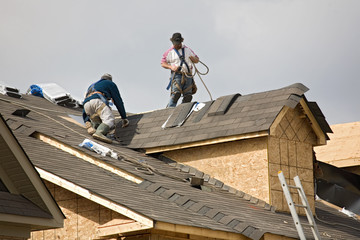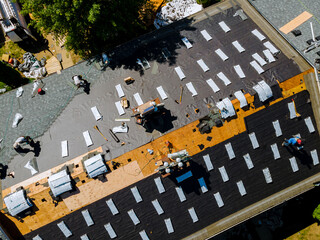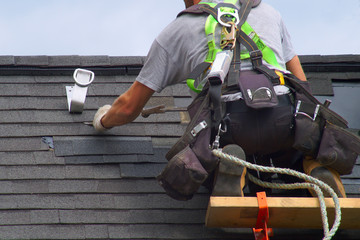Whether you’re building a new home or replacing your old roof, tile roofing is an eco-friendly, low-maintenance, and durable option that will protect your house for years to come. Choosing the right type of tiles can significantly impact your project’s overall cost. Here’s a look at some of the key factors to consider.

Tile roofing is an excellent option for many homeowners who want a low-maintenance roof. Its longevity and durability make it one of the best roof materials on the market, giving your home a beautiful appearance and protecting the elements. Another advantage of tiles is their ability to reflect heat, which reduces energy bills and can help your home stay cooler in the summer. However, it’s important to remember that your tiles will need to be cleaned regularly to keep them looking their best.
Depending on the climate and weather, your tiles may need to be pressure washed every year or so, or you can use an algae-preventing roof cleaner. Keeping your roof clean helps it function properly and prevents costly repairs down the road. While your tiles will not require as much maintenance as other roofing materials, they are still prone to damage and deterioration. Common damage includes tree branches hitting the roof, sandstorms, or other harsh weather conditions that can cause cracks or chips to develop.
Tile Roofing is one of the most durable types of roofing materials. It’s a great option for homeowners in hot climates who want a roof that will last. Clay and concrete tile roofs have a proven track record of performance. They’re able to withstand hail, fire, high winds, and insect damage.
They’re also environmentally friendly and use less resources during production. They don’t require preservatives, and all of their waste is recyclable. The lifespan of a properly installed tile roof can range from 50 to 100 years, and clay and concrete tiles often come with a lifetime warranty.
In the event of damage, a professional tile roofing contractor can pull and replace damaged or broken tiles. They can also replace the underlayment material to ensure your home’s roof is watertight and performing at its best.
One of the most energy efficient roofing materials available is tile. It helps keep your home cool in the summer and warm in the winter. Concrete and clay roof tiles can reflect heat off of their surfaces, reducing your HVAC costs. This makes it a great choice for homes in hot climates.
The federal government also offers tax breaks to homeowners who switch from asphalt shingles to energy-efficient roofing, which is another reason why you should consider installing a tile roof. In addition, tile is a sustainable material, largely because it can be recycled easily and returned to the manufacturing stream when it needs replacement. This reduces the amount of waste and re-roofing that occurs when other types of roofing materials are used, which contributes to landfill waste and emissions.
Tile Roofing is a stunning, natural and distinctive addition to any home. It gives a property an air of quality, enhancing its curb appeal and making it more appealing to potential buyers. It is also a sustainable and eco-friendly roofing option. The raw materials used do not deplete limited resources and do not contain chemical preservatives, which means that less waste will end up in landfills. They are long-lasting and can last as much as 100 years. They are a great investment and may even be the last roof you’ll ever need.
Roofing tiles have excellent thermal properties that help cool your house in the summer and heat it in the winter. They also have the ability to soundproof your home compared to other roof materials, which helps keep noise out of your living space. Lastly, they are one of the most environmentally friendly roofs available. Unlike other roofing options, tiles are recyclable and do not contain toxic chemical preservatives.

